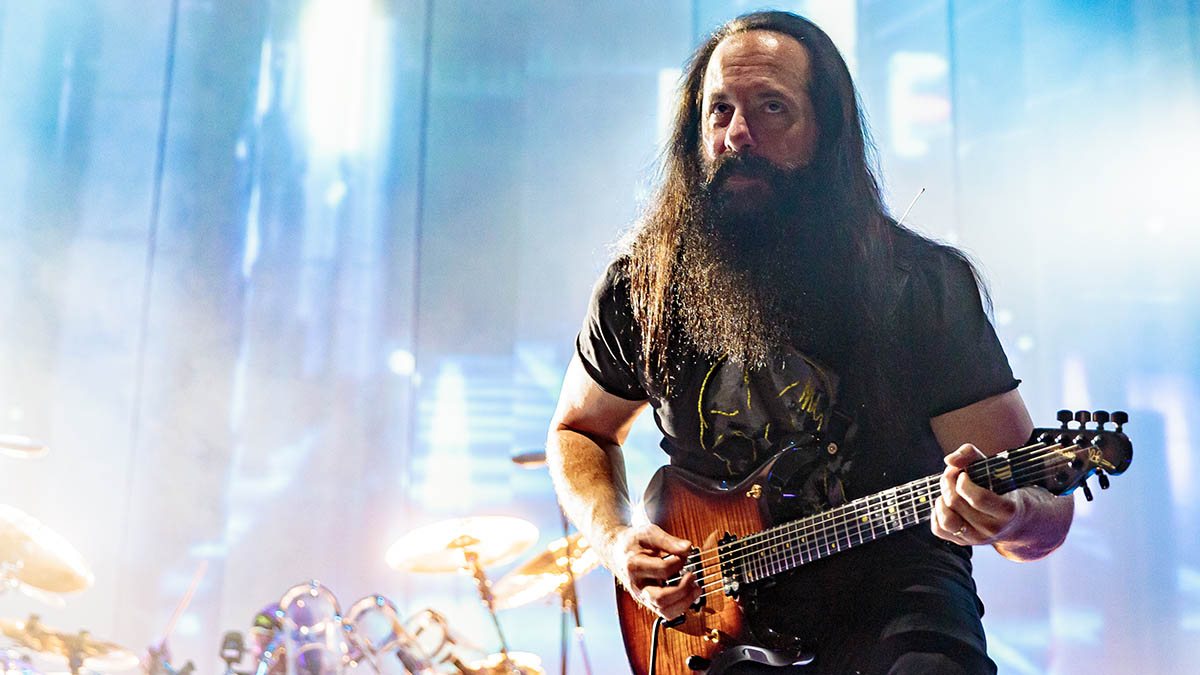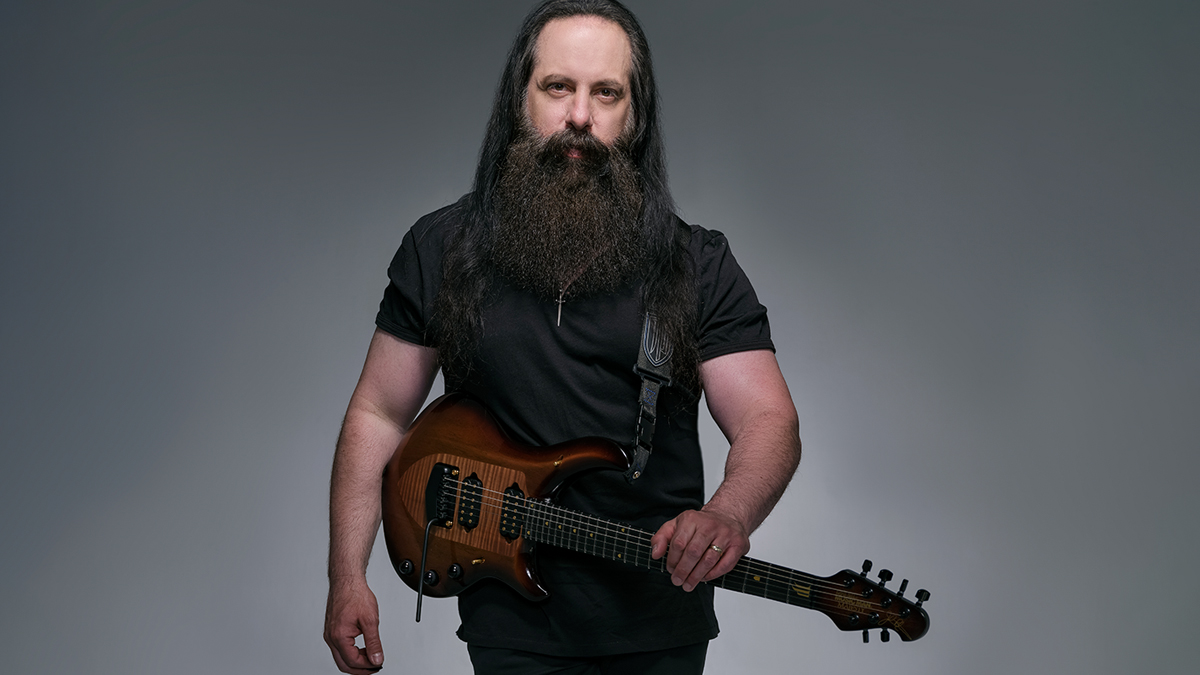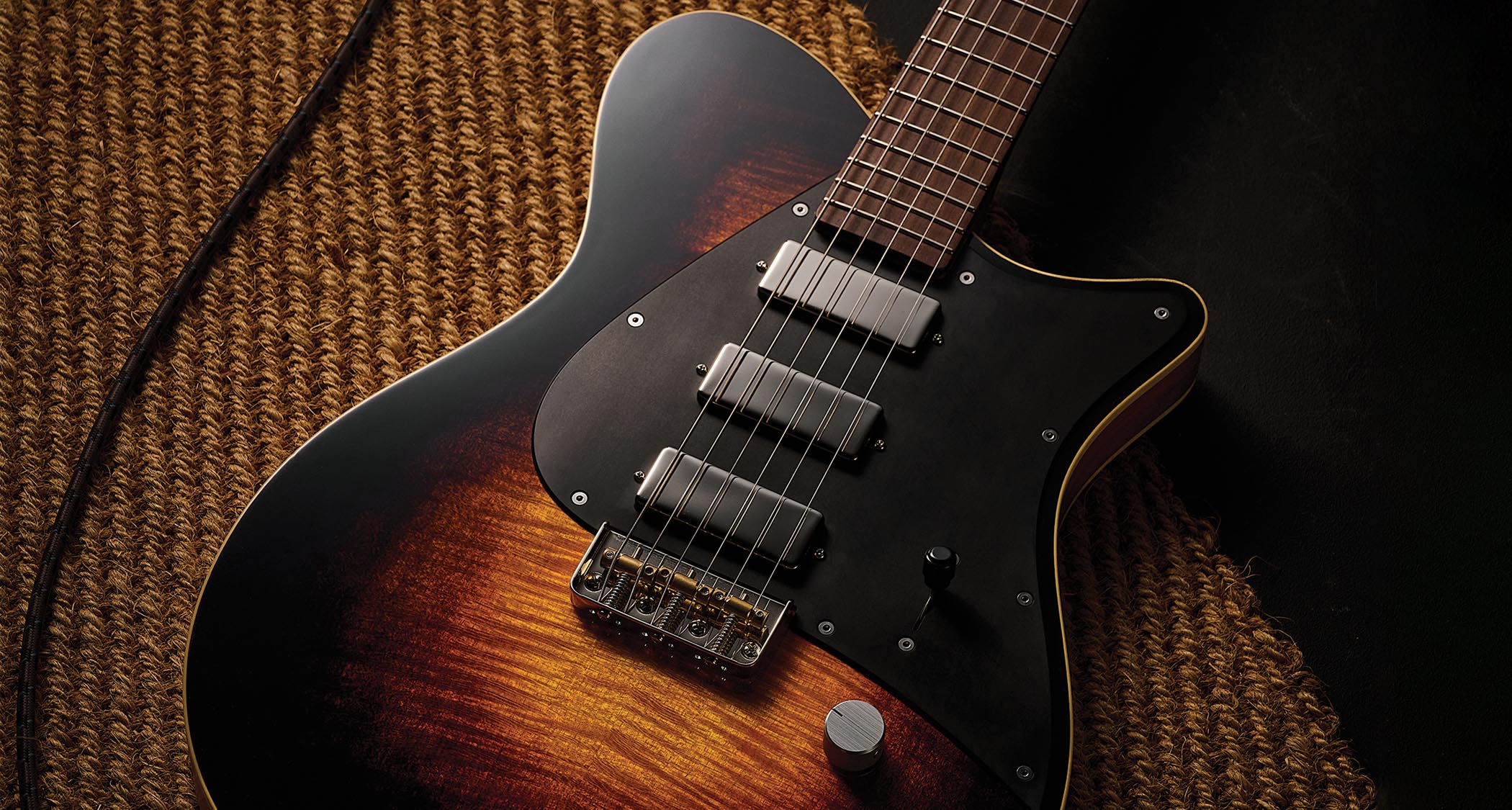John Petrucci talks buying and selling guitars: “I’m completely illiterate in the world of vintage guitars and Les Pauls and Strats and all that stuff”
Dream Theater’s magus of the fretboard on the Les Paul copy that sparked his love of humbuckers and why he might give Django a run for his money…

All the latest guitar news, interviews, lessons, reviews, deals and more, direct to your inbox!
You are now subscribed
Your newsletter sign-up was successful
This month’s guest in our regular buying and selling column is the big kahuna of prog-metal guitar, John Petrucci of Dream Theater. He is a player whose relationship with the electric guitar is more developmental than curatorial, having worked in lockstep with Ernie Ball Music Man on his own signature guitar series.
With models such as the JP and Majesty, the collaboration has given the guitar an evolutionary push – there can be few more state-of-the-art instruments than these. But what about buying guitar gear? Well, as Petrucci admits here, he is no Bonamassa.
He still has a few stories to tell. Even when you are working with one of the most forward-thinking brands on the planet, operating at the frontiers of luthiery, there is always some buyer’s remorse, or the guitar that got away.
What was the first serious guitar you bought with your own money?
“I bought an Aria Pro II guitar that had a whammy bar on it. It wasn’t a Floyd Rose… it was a Kahler. It had visible wood grain and was red. I would say it was a rock guitar, for sure.
John Myung and I just learned every single Iron Maiden song there was, and every Rush song
“I was a teenager at that point. I mean, I started when I was 12, it was probably a couple of years later when I was 14 or so. It’s funny, I was playing with John Myung back then and we still play together in Dream Theater – he’s the bass player – and we met each other when we were 12.
“I would just go jam with everybody in those days. There was one guy who was really into metal and old bands like The Scorpions and Sabbath, so we would jam on all that stuff. And then I had a bunch of guys that were totally into Hendrix and The Dead, so we would jam on that stuff.
All the latest guitar news, interviews, lessons, reviews, deals and more, direct to your inbox!
“There was also a band that we called Centurion, and we would play covers, anything from Mötley Crüe to Rush, Iron Maiden… John Myung and I just learned every single Iron Maiden song there was, and every Rush song.”
What was the last guitar you bought and why?
“The most recent one was actually a few years ago. I started to get interested in Gypsy jazz, the whole Django style, which I don’t know why I was never into before. Once my eyes opened up to it, I realised, ‘Man, this is right down my alley. It’s like shred guitar on acoustic.’
“Those players are so technically incredible. I then discovered Joscho Stephan from Germany, he’s such a phenomenal player, and I started thinking, ‘What guitar does he play?’ There’s this Selmer Maccaferri vibe guitar that he plays.
“I did some research and when Dream Theater was on tour we were fairly close to where the luthier’s shop was. Me and my tech, Maddi [Matt Schieferstein], took a day trip and went to this small shop where I bought a guitar that smelled like cigarettes but played beautifully, and I brought that home. That’s the last guitar that I bought.”
What’s the most incredible find or bargain you’ve ever had when buying gear?
“I feel like, if anything, I overpaid [laughs]. One of the things I got into for a while was Mesa/Boogie Mark 11C+ amps – obviously, they were made in the ’80s and they don’t make them any more. I have a pretty good collection of those, but they can get expensive. I don’t know if I ever got a really good bargain where I was like, ‘Oh my God, I can’t believe I got this for this.’
“But then again, I’m not a vintage guy at all. I’m completely illiterate in the world of vintage guitars and Les Pauls and Strats and all that stuff. I have a really big collection of my own models, my Ernie Ball Music Man guitars, and lots of Mesa/Boogie amps, and racks through the years. But I never really got into buying. Some guys are super-into it, like Bonamassa, but for some reason I never did that.”
What’s the strongest case of buyer’s remorse you’ve ever had?
“It’s usually with something that’s cheap. I’m like, ‘Oh, this will make a good practice amp.’ Then I get it and it’s like, ‘Ah, there’s a reason it was cheap!’ [laughs] But every once in a while, that kind of thing works out…”
Have you ever sold something that you intensely regret letting go of?
“Actually, I think I have to change my first answer now that I remember this: I think the first guitar I bought was actually a Suzuki Les Paul imitation from a flea market. It had a vine down the neck and mother-of-pearl binding, and I think I traded it for the Aria. Looking back, I would rather have still had that first guitar from the flea market.”
What’s your best guitar-buying tip?
“The biggest thing I can relate to is the prototyping process with my guitars. I’ve been with Ernie Ball Music Man for 20 years now and the thing that I look for is performance. That’s how these guitars originally started to get designed, where I had an experience playing other guitars, whether it was a Strat or a Les Paul, typical guitar shapes…
In the prototyping process, especially early on with Ernie Ball Music Man, it was about making a performance machine. I wanted it to be like driving a fast car
“And I always had these ideas like, ‘Why is this knob over here? It’s getting in my way.’ Or, ‘Why is this part of the guitar sharp?’ or ‘Why does my hand hurt when I lean it on the bridge?’ In the prototyping process, especially early on with Ernie Ball Music Man, it was about making a performance machine. I wanted it to be like driving a fast car, where everything’s in the right spot and it’s all ergonomic, and everything’s comfortable.
“So if I were buying a new guitar, as opposed to designing a guitar, I would probably still look for those same things. When I pick up an instrument, I want to know: how does it feel? Not even just the typical things, like, ‘Oh, the neck shape or the action.’ But how does the physical instrument feel on your body? Is it weird? Is it awkward? Is it too big? Is there some weird sharp thing? Is its body too wide? Is it too small? I’m very tactile that way with instruments.”
When was the last time you stopped to stare in a guitar-shop window or browse online?
“If there’s some practical thing that I need, then I’ll actively go and search it out. But, in general, if you just go on Instagram you get inundated with different things, pedals and amps, some cool finish on a guitar… It’s kind of fun.”
If forced to make a choice, would you rather have a really good guitar and a cheap amp, or a cheap guitar and a top-notch amp?
“I think it needs to start with the guitar, honestly, I really do. Because that’s the part you’re physically connecting with. It doesn’t mean the guitar has to be ridiculously expensive; it just has to be right for you.
“But I know with a lot of young players, when they start out, and if they get something that’s not great, it could just make the learning experience that much more difficult. It’s a big learning curve with guitar – there’s that physicality you have to develop – and if you’re playing an instrument that’s really getting in your way, it could make that process slower.

“On the second Dream Theater record, Images And Words, our most famous song on that album – actually the band’s most famous song [outright] – is Pull Me Under. That was our only radio hit. Well, the song opens up with a clean guitar line that was recorded on a little practice thing by Zoom.
“Remember the little Zoom thing you could clip on? [Possibly the Zoom 9002 strap-mounted effects processor – Ed.] That’s what that was recorded on. So if you know how to record and you have a good engineer, you can make a lot of things sound really good.”
If you could only use humbuckers or single coils for the rest of your career, which one would you choose and why?
“Well, that’s easy: humbuckers, because that’s all I use. Why? That’s the sound that I got used to. Probably because, in the very beginning, that Suzuki Les Paul [copy] and that Aria Pro, and my first BC Rich ST-III that I bought, were all double-humbucker guitars.
“I never got into the single-coil thing. That said, I can get coil-split sounds on my guitars. I couldn’t play any guitar that has a central single-coil pickup because of the way that I pick – it would just be hitting against the pickup. I need that space in the middle.”
- A View From The Top of the World is available now on InsideOutMusic.
Jamie Dickson is Editor-in-Chief of Guitarist magazine, Britain's best-selling and longest-running monthly for guitar players. He started his career at the Daily Telegraph in London, where his first assignment was interviewing blue-eyed soul legend Robert Palmer, going on to become a full-time author on music, writing for benchmark references such as 1001 Albums You Must Hear Before You Die and Dorling Kindersley's How To Play Guitar Step By Step. He joined Guitarist in 2011 and since then it has been his privilege to interview everyone from B.B. King to St. Vincent for Guitarist's readers, while sharing insights into scores of historic guitars, from Rory Gallagher's '61 Strat to the first Martin D-28 ever made.

